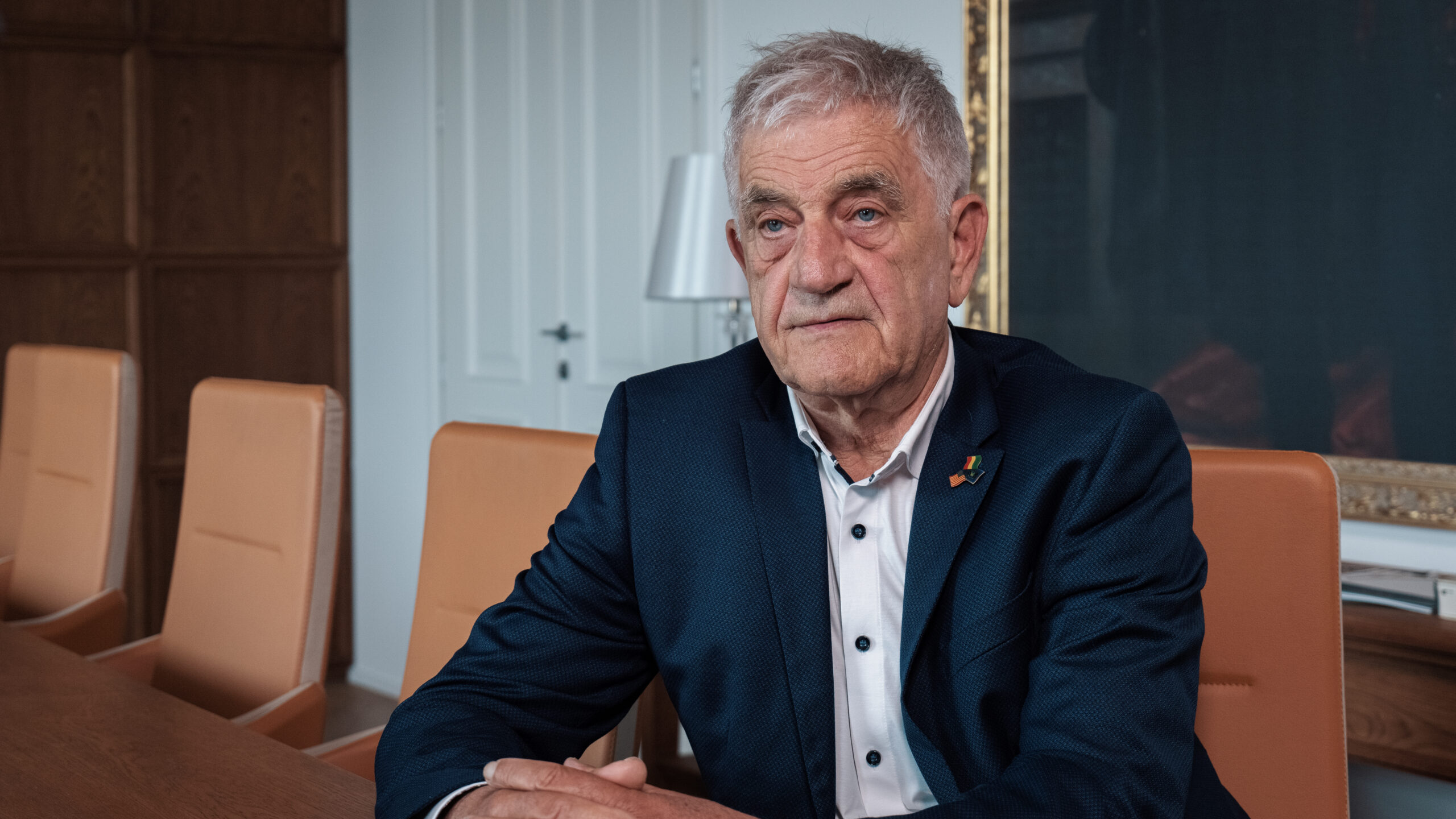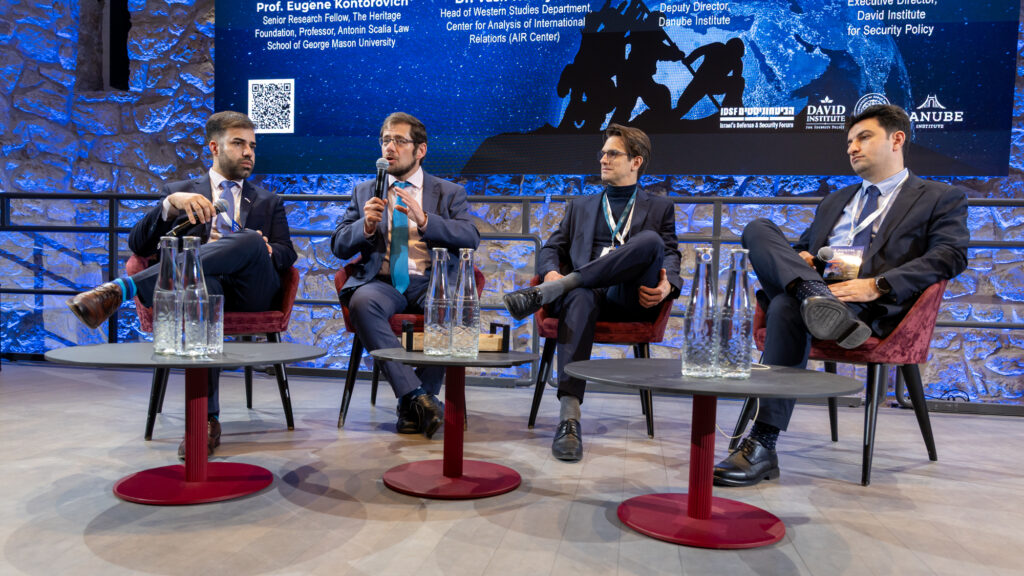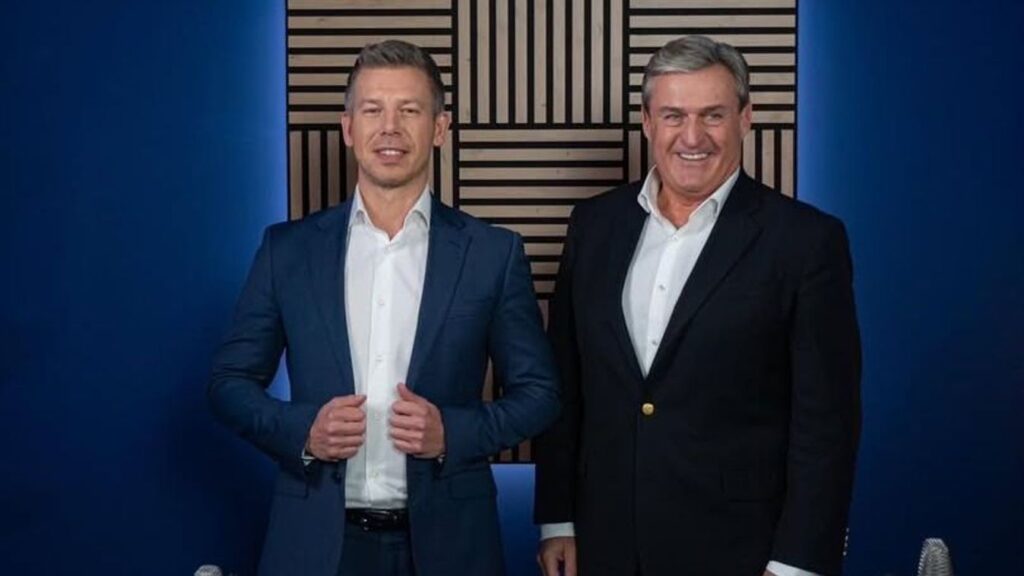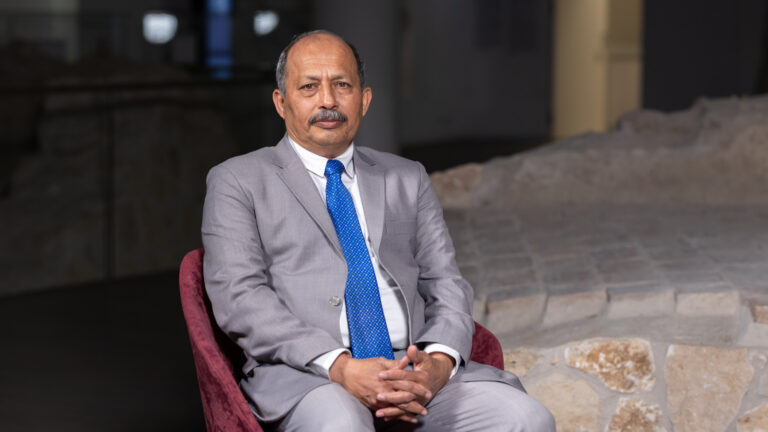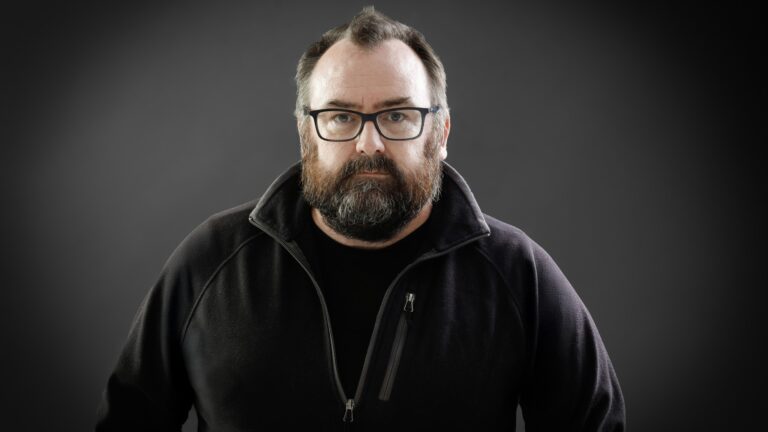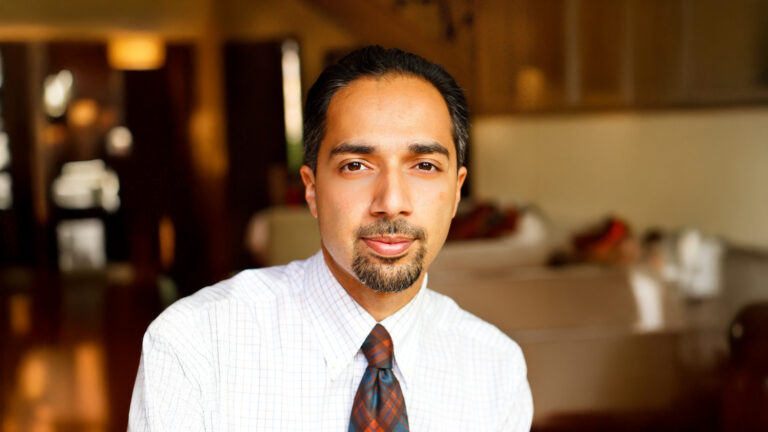Sándor Kürt is the co-founder of KÜRT Zrt, a pioneering Hungarian data recovery and information security company known for its role in the aftermath of the 9/11 attacks. He has led the firm through major international breakthroughs, combining technical innovation with business leadership. On 13 May 2025 Kürt attended the Free Market Road Show in Budapest, co-organized by the Danube Institute and the American–Hungarian Chamber of Commerce of New York. On the sidelines of the event, he kindly sat down with Hungarian Conservative for a brief interview to reflect on the company’s rise, his meeting with President George W Bush, and the lessons he has drawn from decades of navigating global markets.
***
KÜRT Zrt gained international recognition for its pivotal role in recovering data from damaged storage devices found amid the rubble of the World Trade Center following the terrorist attacks of 11 September 2001. This eventually led to a meeting with President George W Bush. How valuable was such an encounter from a marketing perspective?
We were given five minutes for the entire meeting. During that time, President Bush maintained unbroken eye contact—he never once looked away. At one point, as I took a breath, he suddenly asked: ‘But really, tell me, what makes you so good?’ With the help of our marketing team, we devised a plan to quickly gain access to the systems that had protected the World Trade Center, and thereby retrieve sensitive data that was still recoverable. We subsequently reached out to George Pataki, then Governor of New York, and former Mayor Rudy Giuliani. Within three days, CNN had arrived in Hungary and broadcast a two-minute feature on our company.
We successfully recovered data from around 20 storage devices, and the entire story generated enormous publicity. Through my American contacts, we secured office space in Fairfax County, Washington, DC—almost free of charge. The fact that I appeared in a photo alongside the President of the United States opened countless doors. However, that did not necessarily translate into real business opportunities, as things in the American market are far more complex. We did receive a few opportunities initially and even began short-term cooperation with a US competitor. Yet they received such significant state support that they ultimately dominated our market—even in Europe. As a result, we were forced to seek business opportunities along entirely different avenues. But that, after all, is the nature of the market.
You entered the US market with an extraordinary story. Do you believe Hungarian companies today have more opportunities to do so than you did at the time?
It’s difficult to give a definitive answer. What I can say is that we were not the only Hungarian company to enter the US market following the regime change. There were two or three others as well, mainly in the fields of education and IT. I do not know their exact trajectories, but I recall that when we were being recognized, they too were mentioned—they were part of the broader picture. In truth, the possibilities for entering that market are virtually endless, but so too is the willpower required.
These may sound like generalities, but one needs a solid understanding of the market and, most importantly, something genuinely unique. To succeed overseas, one must undergo a fundamental shift in mindset and be prepared for intensive learning. The culture of team-building that exists in the United States—which I know well, having practically memorized the team-building textbooks from Harvard, Stanford and MIT—is virtually unknown in Hungary. So much so that we are essentially incapable of taking even the first step.
What exactly do you mean by that?
Professor Peter Senge of MIT wrote a book entitled The Fifth Discipline. If someone not only reads that 500-page book but actually learns it and knows how to apply it, then they have truly attended a first-class institution and are prepared to lead. We have no such textbooks in Hungary—and that is only the tip of the iceberg.
If one can master the Harvard textbook Balanced Scorecard, developed by Norton and Kaplan, one has the tools to build the world’s best companies. And I do not say this lightly: more than 90 per cent of Fortune 500 companies use this methodology. Jim Collins, who formerly taught at Harvard and is now an independent consultant, discusses this in his book Good to Great, which was also published in Hungarian and has sold over ten million copies worldwide. He later co-authored Great by Choice. These are all well-established concepts, yet the culture that surrounds them is entirely absent in Hungary. The textbooks I mentioned are not part of Hungarian higher education. And those that are included, unfortunately, often miss the essence entirely.
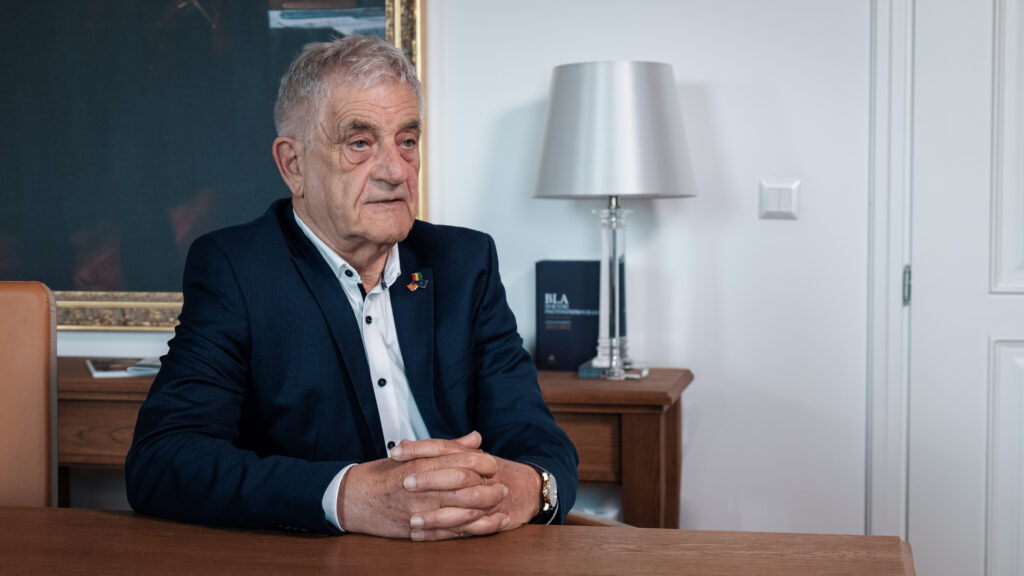
And what is that essence?
In every field—be it industry or entrepreneurship—clarity stems from a structured, analytical approach. One must begin by clearly defining the scope and framework of the problem—say, Hungary as the context. Then it is crucial to articulate the objective functions—not vague goals that might change tomorrow, but specific, stable aims that everyone involved can understand. If we were capable of building systems along those lines, we would unlock tremendous potential.
We were fortunate to be accepted by the developed West and to join the European Union. Hungary accounts for about 2 per cent of the EU’s population, and our contribution to innovation is roughly the same. Our aim should not be to assume a leadership role, but rather to integrate as effectively as possible. Expecting others to focus on us or follow our lead is simply unrealistic.
You and your brother co-founded KÜRT Zrt. Could you tell us a bit about your family background? How did it shape your journey?
The Second World War devastated our family. My father, who was conscripted into forced labour, was captured near Stalingrad. Because he spoke Russian, they spared his life. My mother was on her way to Auschwitz when my brother was born, and by chance, they both survived. Our house was in ruins. My father spent ten years rebuilding it while working as a bridge labourer, helping to restore the bridges of Budapest.
Our mother was a schoolteacher and made a great effort to ensure we attended good schools. My brother went on to study mechanical engineering at a technical school; I trained as a carpenter and later obtained my secondary school certificate. My mother’s main goal was for us to have a profession. And she was right—those provided a solid foundation.
By supporting one another, my brother and I became—figuratively speaking—world-renowned. János was the inventor type, while I had more of a managerial mindset. These are two very different worlds, but we complemented each other well. When I was hired as a labourer, I never aspired to take his place—I knew he was the best in his field and understood market needs.
‘That is the fundamental dilemma of becoming a leader: do you truly know what you want to become?’
When we transformed into a private limited company, I took over the management. By then, I had come to understand what leadership truly requires—something János neither learned nor cared to. And that is the fundamental dilemma of becoming a leader: do you truly know what you want to become? If you are an excellent professional, you can thrive in a smaller market. But if you are a leader, there are no limits to the size of the market you can serve.
How do those two mindsets differ?
To run a small shop, it is enough to be highly skilled in your trade. But to be a leader, technical knowledge alone is insufficient. You must be able to resolve dilemmas—the more you face, the better you become. Dilemmas involve questions that have no clear-cut answers. But if you have worked your way through hundreds or even thousands, you will learn to navigate them.
Many people laughed at Elon Musk when he began manoeuvring the dollar market—I am referring here to tariffs. Yet he remains one of the world’s finest managers. He undertook an experiment no one else had: he attempted to stimulate the value of the US dollar. It did not succeed, but he learned immensely from it. He gained experience that no one else possesses. And despite the mockery, he remains one of the leading figures in the world.
Read more of our interviews:

